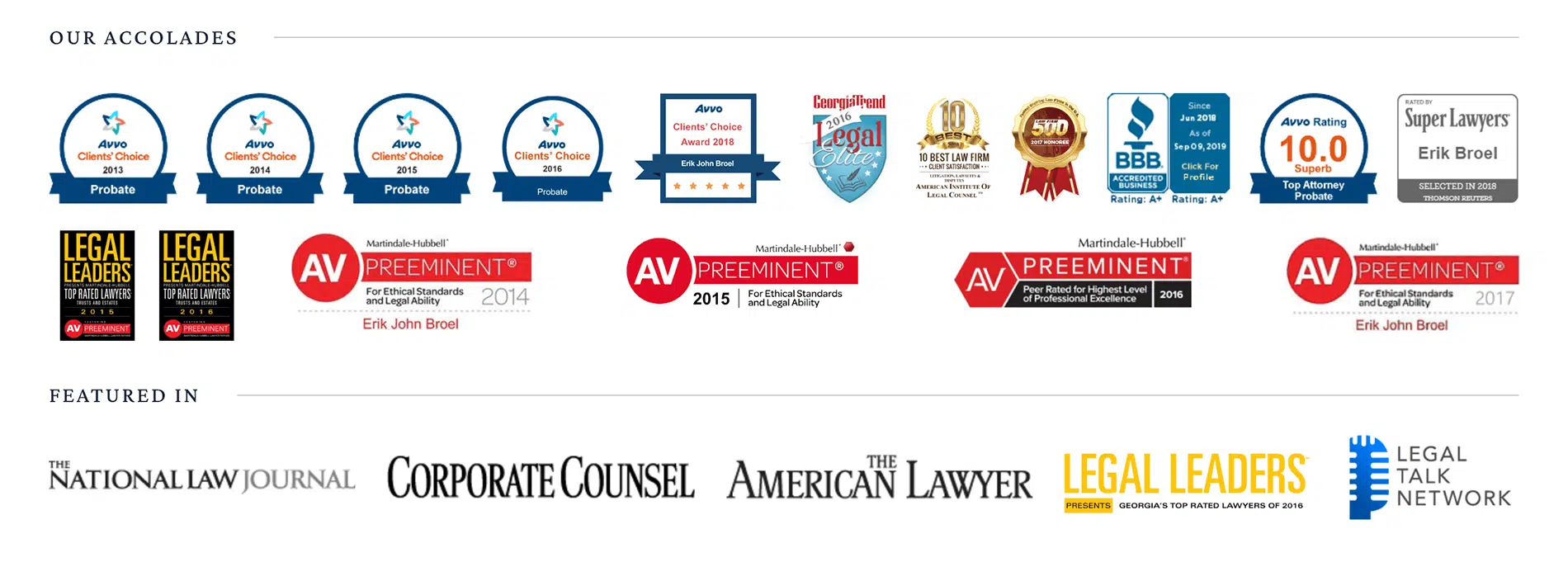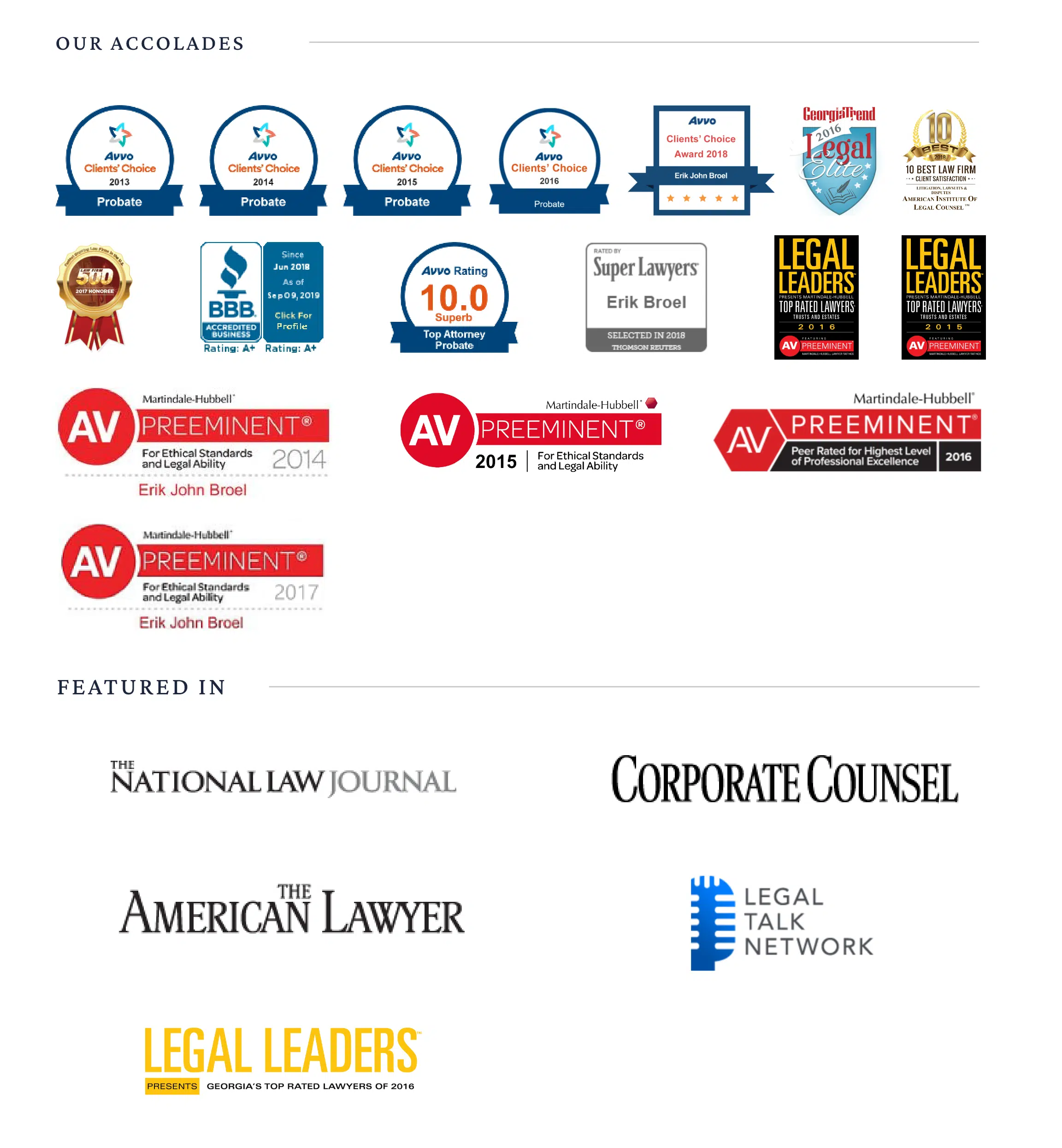When a parent passes away, the void can feel insurmountable. As you come to terms with loss, you may be navigating through legal obligations that seem very complex. You may find yourself asking questions like:
If you are in such a situation, this article will guide you. We will walk you through the critical steps and provide insights into what you can expect during the probate process.
Whether you’re an only child or one of several siblings, our goal is to make the probate process as straightforward as possible.
Your parents’ will acts as your guide in handling their estate. So, the first thing to do is find this crucial document.
Most often, you will discover the will in a safe or lockbox. Some people choose to keep it with their attorney or at a bank. If your parents had a conversation with you about it, that could simplify the process.
Once you have located the will, identify who is named as the executor in it. They will start the probate process by submitting the will to the probate court. They will oversee the estate administration and distribute assets as stated in the will.

In this situation, you can initiate probate based on intestacy laws, which determine how assets are distributed without a will.
You may wonder if probate is necessary, and this article will explain why we recommend it.
For trickier situations like this, it is smart to seek assistance from a probate attorney to navigate the process effectively.
Once you have initiated probate, the following three phases come next:
This phase jumpstarts the probate court proceeding, where the probate court officially assigns one person—a personal representative—to administer the deceased person’s estate. If a will exists, it usually names a person called an executor for the role. This person will carry out the wishes of the deceased person as outlined in the will. If there is no will or it cannot be located, surviving family members can nominate someone called an administrator. The executor and administrator share similar responsibilities, except the executor follows the terms of the will while the administrator follows intestacy laws to distribute assets of the deceased person’s estate.
During this phase, the personal representative gathers all the estate assets, pays off any debts and taxes, and prepares an inventory for probate court review. When assets fall short of paying debts, the personal representative may have to sell some of the deceased’s property to cover these debts. Occasionally, some estates still wind up with insufficient assets and leave heirs without an inheritance.
Finally, the personal representative distributes any remaining assets to the heirs or beneficiaries. They will then file the necessary paperwork requesting to be discharged from their responsibilities related to the estate.
There is no specific timeline for how long someone must transfer property after death in Georgia.
It all depends on the evolution of the probate process, which is not quick. Typically, a non-dispute probate process in Georgia will take 12-18 months to complete, but it could stretch for years in complicated cases. A lot depends on the complexity of the estate, how well family members cooperate, and the probate court system.
However, if an interested party, such as an heir or beneficiary, would like their inheritance distributed to them, there are options to attempt to force the Executor or Administrator to act in a timely manner to distribute property.
Typically, it is not recommended to keep a home in the name of a person who has passed away. But, it depends on the probate process and every situation is different. That’s why we recommend speaking with a probate attorney about your specific situation.
In Georgia, there is no specific timeline for how long a house can be held in a deceased person’s name.
Keeping the estate home in a deceased person’s name can cause complications such as:
How long do you have to transfer property after death? Is probating both parents’ estates necessary? You may wonder if you have to go through the probate process twice—once for each parent.
The answer often depends on how their assets were held and whether both parents had wills. Here are three possible scenarios:
When both parents have valid wills and they pass away together, their assets’ distribution follows their respective wills’ instructions. Each parent’s will lays out how their assets will be shared among beneficiaries. The wills need to be clear, current, and legally valid. The named executor for each will take charge of carrying out the will’s wishes, including distributing assets and settling debts.
If only one parent has a valid will, both parents’ estates may go through probate, especially if they passed away simultaneously. The parent with a will goes through probate according to its terms. Their assets get distributed as specified, and an executor oversees the process. For the parent without a will, Georgia’s intestacy laws apply. These laws determine the order of inheritance among family members. If there’s no will, a probate court appoints an administrator to manage asset distribution under these laws.
When neither parent leaves a will, Georgia’s intestacy laws apply. These laws outline how assets are distributed when someone dies without a valid will, and the specifics vary depending on the family situation.
In many cases, you can handle probate for both parents together. It is a good idea to consult a probate attorney to tailor the process to your unique situation.
How a property is titled matters since it determines who inherits it and how. For property shared between two or more people, the deed may be titled in two ways:
Under JTWROS, the surviving owner typically inherits the other owner’s share upon their death. Usually, this type of transferring property doesn’t require probate.
With TIC, each property owner has a specific share of the property. This share does not automatically pass to other tenants when one owner dies. Instead, it becomes part of the deceased’s estate and goes through probate.
In any case, we recommend reviewing the property’s deed with an experienced attorney to ensure proper handling.
Real estate titling is not one-size-fits-all. Different structures have different impacts on probate.
If only one parent is listed on the property deed, that property becomes part of that parent’s estate. It will likely have to go through probate unless other mechanisms, like a living trust, come into play.
When your parents owned multiple properties, and each was listed on different deeds, you may find yourself entangled in multiple probate proceedings. Each property will have to be probated based on the specifics of its titling and the laws governing it.
A deceased person’s financial assets typically fall into two categories: probate and non-probate assets.
Probate assets are those solely owned by the deceased without a designated beneficiary. This includes bank accounts in their name only, individual stocks and bonds, and even personal belongings like cars and jewelry.
Non-probate assets, on the other hand, have a designated beneficiary or joint owners. Think of retirement accounts, life insurance policies, or jointly owned properties. These assets usually transfer directly to the named beneficiary without probate.
If there are financial accounts that do not have a beneficiary listed, those accounts typically may have to go through the probate process.
For example, if a few accounts solely bear the father’s name without beneficiaries—and the same situation applies to the mother’s accounts—probating both parents’ assets might be necessary to ensure appropriate distribution.
You may think losing both parents would double the paperwork, but that is not always the case. Probating both parents’ estates can often be synchronized to streamline the process. However, the basic steps remain the same.
There may be instances when adult children clash over inheritance. For example, if you have spent more time caring for the deceased parent, you may feel entitled to a larger share of the estate.
To advocate for yourself, stay informed. If you have serious concerns, especially about contesting aspects of the probate process, seek advice from a probate attorney.
Yes, a family member can contest the probate process, but it is not a straightforward process. Contesting any part of probate demands substantial evidence of wrongdoing or neglect, so it is advisable to have a skilled attorney on your side.
Having an estate plan that includes a will definitely simplifies things. The will spells out who gets what, and it is the executor’s job to make sure this happens. After debts and taxes are paid, assets are typically distributed according to the will’s instructions.
While the process is straightforward, there can be unique situations when you are probating for both parents’ estates.
For example, one parent’s will might state that the estate goes to the other parent. If the beneficiary parent also passes away, the inheritance may need to go into their estate and then be distributed correctly according to its terms.
When there’s no will, probating both parents’ assets becomes a little more complex. Georgia’s intestate succession law comes into play. These laws dictate how assets are divided among surviving relatives. Generally, the surviving spouse and adult children are first in line, followed by more distant relatives if none are available.
Several factors must be considered when making intestate distributions in a two-parent estate, such as:
These examples and more can drastically affect proper distribution, so we recommend consulting a Probate Attorney about administering and distributing the estates.
Probating both parents’ estates can be complex, and even a small mistake can result in delays or legal challenges. An experienced probate attorney can guide you through each step, ensuring you fulfill your legal responsibilities as an executor or heir.
For example, a probate attorney can help you:
Remember, probate proceedings involve more than just filling out paperwork. It’s about safeguarding a legacy while balancing emotional and legal complexities.
Having an experienced probate attorney in your corner can make the process smoother and less stressful, allowing you to focus on what really matters: honoring the memory of your loved one.
If you need more specific guidance or legal expertise in the probate process, particularly if both parents have passed away, don’t hesitate to contact us. Call our office at (770) 796-4582 to set up a consultation.
Disclaimer: The information above is provided for general information only and should not be considered legal advice. Our probate attorneys provide legal advice to our clients after talking about the specific circumstances of the client’s situation. Our law firm cannot give you legal advice unless we understand your situation by talking with you. Please contact our law office to receive specific information about your situation.
Compassionate listeners, knowledgeable guidance. Schedule a free consultation with our team and let us help you and your family with your legal concerns.
GET IN TOUCH 770-796-4685Learn Important Probate Essentials, including key things that go wrong in an estate, how to prevent them, and what to do if they happen.



© 2024 Georgia Probate Law Group by Broel Law, LLC. All rights reserved.